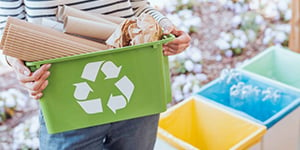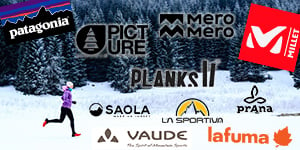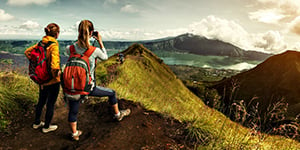Sign in
Contact
-
MenuBack
-
Our Sports
-
-
-
-
Hiking equipment
- Headlamp
- Hiking accessories
- Hiking compass
- Hiking poles
- Pole accessories
- Sunglasses
- Trekking binoculars
-
Hiking equipment
-
-
Hiking bag
- Baby carrier accessories
- Baby carrier bag
- Children's backpacks
- Hiking backpack
- Isothermal bag
- Rain cover
- Waterproof bags
-
Hiking bag
-
-
-
-
Hiking shoes
- Flip-flops
- Hiking boots
- Hiking sandals
- Hiking shoe accessories
- Insoles for hiking boots
- Low hiking shoes
-
Hiking shoes
-
-
Hiking shoe accessories
- Cleaning products
- Laces
- Waterproofing
-
Hiking shoe accessories
-
-
-
- Hiking clothes
-
- Hiking caps
- Hiking hats
- Hiking socks
- Men's hiking jackets
- Men's hiking pants
- Men's hiking T-shirts
- Men's Softshell Jacket
- Women's hiking jackets
- Women's hiking pants
- Women's hiking T-shirts
- Women's Softshell Jacket
-
- Men's hiking shorts
- Women's hiking shorts
-
-
-
-
-
-
Mountaineering equipment
- Ice screws
- Mountaineering accessories
- Mountaineering backpack
- Mountaineering crampons
- Mountaineering harness
- Mountaineering ice axe
- Mountaineering rope
-
Mountaineering equipment
-
-
-
-
Mountaineering shoes
- Approach Shoes
- Mountain boots
- Mountaineering boots
-
Mountaineering shoes
-
-
-
- Mountaineering Clothing
-
- Climbing gloves
- Men's fleeces
- Men's ski pants
- Men's Softshell Jacket
- Women's fleeces
- Women's ski pants
- Women's Softshell Jacket
-
- Men's mountaineering jacket
- Women's mountaineering jacket
-
-
-
-
-
-
Climbing belay
- Climbing anchors
- Climbing belay goggles
- Climbing carabiner
- Climbing pulleys
- Climbing quickdraws
- Climbing ropes
- Climbing straps
- Climbing wedges
- Rope bags
-
Climbing belay
-
-
-
-
Climbing shoes
- Lace-up climbing slipper
- Velcro climbing shoes
-
Climbing shoes
-
-
Climbing equipment
- Climbing accessories
- Climbing backpack
- Climbing bivouac
- Climbing harness
- Climbing helmets
- Crash Pad
- Magnesia bag
- Magnesia for climbing
-
Climbing equipment
-
-
-
- Climbing clothes
-
- Climbing gloves
- Men's climbing pants
- Men's climbing T-shirts
- Men's Softshell Jacket
- Women's climbing pants
- Women's climbing T-shirts
- Women's Softshell Jacket
-
- Men's climbing shorts
- Women's climbing shorts
-
-
-
-
-
-
Tents
- 1-person tent
- 2-person tent
- 3-person tent
- Family Tent Camping
- Floor mats
- Mosquito net
- Shipping tent
- Trekking tent
- Ultra-light tent
-
Tents
-
-
-
-
Camping equipment
- Camping accessories
- Camping chairs
- Camping lamp
- Camping table
- Camping towels
- Solar shower
-
Camping equipment
-
-
Survival accessories
- Compass
- First aid kit
- Survival blankets
- Survival kit
- Water purifier
-
Survival accessories
-
-
-
-
Camping kitchen
- Camping cooler
- Camping dishes
- Camping stove
- Cutlery
- Gas cartridges
- Gourds
- Kettle
- Nutrition
- Popote camping
- Stove accessories
-
Camping kitchen
-
-
-
-
Camping bedding
- Camping hammock
- Camping mattresses
- Camping pillows
- Camping sheets
- Compression bag
- Sleeping bag
-
Camping bedding
-
-
-
-
-
-
Survival gear
- Bushcraft tools
- Machetes
- Solar chargers
- Survival knives
-
Survival gear
-
-
-
-
Survival accessories
- Compass
- First aid kit
- Survival blankets
- Survival kit
- Water purifier
-
Survival accessories
-
-
-
- Nutrition
-
-
-
-
-
-
Trail equipment
- Hydration accessories
- Hydration vest
- Hygiene
- Pharmacy
- Soft Flask
- Trail bag
- Trail belts
- Trail headlamp
- Trail stick
- Water Pouch
-
Trail equipment
-
-
-
- Trail shoe
-
- Sandal recovery
- Shoe sole
- Trail crampons
- Trail shoes
-
-
-
- Trail clothing
-
- Men's tank tops
- Men's trail jackets
- Men's trail shorts
- Men's trail T-shirts
- Men's trail tights
- Men's windproof jackets
- Trail caps
- Trail socks
- Women's shorts
- Women's tank tops
- Women's trail jackets
- Women's trail T-shirts
- Women's trail tights
- Women's windproof jackets
-
-
-
-
-
-
Running gear
- Energy drinks
- Energy supply
- Nordic walking poles
- Running hydration vest
-
Running gear
-
-
-
-
Running shoe
- Running shoes
- Sandal recovery
- Shoe sole
-
Running shoe
-
-
-
- Running clothes
-
- Women's technical bra
- Running socks
- Men's tank tops
- Trail caps
- Men's trail jackets
- Women's trail jackets
- Men's trail shorts
- Men's trail T-shirts
- Women's trail T-shirts
- Men's windproof jackets
- Women's windproof jackets
- Women's shorts
-
-
-
-
-
-
Road bike equipment
- Bike Bag
- Bike goggles
- Bike helmet
- Bike shin guards
- Bike sleeve
-
Road bike equipment
-
-
Road bike accessories
- Baby seat carrier
- Bicycle bag
- Bike rack
- Bike tools
- Bike trailer
- Cans
-
Road bike accessories
-
-
-
-
Bicycle shoes
- Boa cycling shoe
- Classic cycling shoe
- On shoes
-
Bicycle shoes
-
-
-
- Bike clothing
-
- Men's cycling shorts
- Women's cycling shorts
- Men's cycling jacket
- Women's cycling jacket
- Men's cycling shorts
- Women's cycling shorts
- Women's short-sleeve cycling jersey
- Men's short-sleeve cycling jersey
-
- Bike cap
- Bike gloves
- Bike socks
-
-
-
-
-
-
Mountain bike equipment
- ATV protection
- Mountain bike goggles
- Mountain bike helmet
- MTB Mask
-
Mountain bike equipment
-
-
-
-
MTB shoes
- Boa MTB shoe
- Classic MTB shoes
-
MTB shoes
-
- Bike rack
-
-
-
- Mountain bike clothing
-
- Bike cap
- Bike gloves
- Bike socks
- Men's cycling jacket
- Men's cycling shorts
- Men's cycling shorts
- Women's cycling jacket
- Women's cycling shorts
- Women's cycling shorts
-
- Women's long-sleeve cycling jersey
- Men's long-sleeve cycling jersey
-
-
-
-
-
-
-
Ski equipment
- Ski poles
- Ski boots
- Ski bindings
- Ski binding pack
- Downhill skiing
-
Ski equipment
-
-
Ski equipment
- Ski goggles
- Ski mask
- Ski helmet
- Ski helmet with visor
- Back protectors
- Wrist guards
- Ski backpack
- Other protections
-
Ski equipment
-
-
-
-
Avalanche safety equipment
- Airbag
- Airbag cartridges
- Avalanche probes
- Avalanche shovel
- DVA
- DVA overhaul
- DVA packs
- Inclinometers
- Safety accessories
-
Avalanche safety equipment
-
-
Ski accessories
- Mask shields
- Ski bags
- Ski boot bags
- Ski boot soles
- Ski equipment maintenance
-
Ski accessories
-
-
-
- Ski clothing
-
- Women's alpine ski pants
- Women's Alpine ski jackets
- Men's Alpine ski jackets
- Men's alpine ski pants
- Men's ski jacket
- Women's ski jacket
- Children's ski jacket
- Ski socks
- Children's ski suit
-
- Children's fleece
- Children's ski pants
- Heated ski gloves
- Men's fleeces
- Men's Softshell Jacket
- Mittens
- Ski cap
- Ski gloves
- Ski headband
- Under gloves
- Women's fleeces
- Women's Softshell Jacket
-
-
-
-
-
-
Ski touring equipment
- Ski touring
- Ski touring boots
- Ski touring knives
- Ski touring packs with bindings
- Ski touring packs with bindings and skins
- Ski touring packs with skins
- Ski touring poles
- Ski touring skins
- Touring ski bindings
-
Ski touring equipment
-
-
Telemark equipment
- Telemark binding
- Telemark Shoes
- Telemark skiing
-
Telemark equipment
-
-
-
Ski accessories
- Mask shields
- Ski bags
- Ski boot bags
- Ski boot soles
- Ski equipment maintenance
-
Ski accessories
-
-
-
-
Avalanche safety equipment
- Airbag
- Airbag cartridges
- Avalanche probes
- Avalanche shovel
- DVA
- DVA overhaul
- DVA packs
- Inclinometers
- Safety accessories
-
Avalanche safety equipment
-
-
Ski touring equipment
- Ski brakes
- Ski touring bag
- Ski touring goggles
- Ski touring helmet
- Ski touring mask
-
Ski touring equipment
-
-
-
- Cross-country ski clothing
-
- Men's lightweight down jacket
- Women's lightweight down jacket
- Men's ski touring jackets
- Men's ski touring pants
- Women's ski touring jackets
- Women's ski touring pants
-
- Men's fleeces
- Men's Softshell Jacket
- Ski cap
- Ski touring gloves
- Ski touring socks
- Under gloves
- Women's fleeces
- Women's Softshell Jacket
-
-
-
-
-
-
Cross-country ski equipment
- Cross-country ski bindings
- Cross-country ski boots
- Cross-country ski pack with binding
- Cross-country ski poles
- Cross-country skiing
-
Cross-country ski equipment
-
-
Cross-country ski accessories
- Cross-country ski boot bags
- Cross-country ski bags
- Cross-country ski goggles
- Cross-country ski mask
- Cross-country wax
- Waxing tool
-
Cross-country ski accessories
-
-
-
-
Nordic ski touring equipment
- Nordic ski touring
- Nordic touring ski boots
-
Nordic ski touring equipment
-
-
-
- Cross-country ski clothing
-
- Men's cross-country ski jackets
- Men's cross-country ski pants
- Women's cross-country ski jackets
- Women's cross-country ski pants
-
- Cross-country ski gloves
- Cross-country socks
- Men's lightweight down jacket
- Men's Softshell Jacket
- Women's lightweight down jacket
- Women's Softshell Jacket
-
-
-
-
-
-
Snowboard equipment
- Boots
- Snowboard
- Snowboard bindings
- Snowboard packs with bindings
-
Snowboard equipment
-
-
Splitboard equipment
- Skins
- Splitboard
- Splitboard accessories
- Splitboard bindings
-
Splitboard equipment
-
-
Snowboard maintenance equipment
- Ski - Snowboard maintenance
- Wax
-
Snowboard maintenance equipment
-
-
-
-
Snowboard accessories
- Boot bags
- Snowboard bags
-
Snowboard accessories
-
-
Avalanche safety equipment
- Airbag
- Airbag cartridges
- Avalanche probes
- Avalanche shovel
- DVA
- DVA overhaul
- DVA packs
- Inclinometers
- Safety accessories
-
Avalanche safety equipment
-
-
-
- Snowboard clothing
-
- Men's Alpine ski jackets
- Men's alpine ski pants
- Men's fleeces
- Men's ski jacket
- Men's Softshell Jacket
- Women's Alpine ski jackets
- Women's alpine ski pants
- Women's fleeces
- Women's ski jacket
- Women's Softshell Jacket
-
- Men's snowboard jacket
- Men's Snowboard Pants
- Snowboard gloves
- Snowboard mittens
- Women's snowboard jacket
- Women's Snowboard Pants
-
-
-
-
-
-
Snowshoeing
- Snowshoe shoes
- Snowshoe poles
- Snowshoeing
- Snowshoes and poles pack
-
Snowshoeing
-
- Accessories
-
- Hoods
- Neck covers
- Scarves
- Ski cap
- Ski gloves
- Ski headband
- Ski socks
- Under gloves
-
-
-
-
Snow shoes
- Après Ski
- Gaiters
- Shoe chains
- Winter boots
-
Snow shoes
-
-
Hiking shoe accessories
- Cleaning products
- Laces
- Waterproofing
-
Hiking shoe accessories
-
-
-
-
-
-
-
Lifestyle equipment
- Duffle bags
- Lifestyle accessories
- Sunglasses
- Travel bag
- Urban backpack
-
Lifestyle equipment
-
-
-
-
Lifestyle shoes
- Flip-flops
- Lifestyle shoes
- Sandals
- Slippers
- Sneakers
-
Lifestyle shoes
-
-
-
- Lifestyle clothing
-
- Lifestyle Caps
- Lifestyle Gloves
- Lifestyle socks
- Men's shirts
- Men's summer pants
- Women's summer pants
- Men's sweatshirts
- Women's sweatshirts
- Men's Lifestyle T-shirts
- Women's lifestyle T-shirts
- Men's winter jackets
- Women's winter jackets
-
-
-
-
Shoes
-
-
-
-
Snow shoes
- Après Ski
- Gaiters
- Shoe chains
- Winter boots
-
Snow shoes
-
- Ski boots
-
- Ski touring boots
-
-
Cross-country ski boots
- Classic
- Skating
-
Cross-country ski boots
-
- Snowboard Boots
-
- Canyoning shoes
-
-
-
-
Hiking shoes
- Flip-flops
- Hiking boots
- Hiking sandals
- Hiking shoe accessories
- Insoles for hiking boots
- Low hiking shoes
-
Hiking shoes
-
-
Mountaineering shoes
- Approach Shoes
- Mountain boots
- Mountaineering boots
-
Mountaineering shoes
-
- Trail shoe
-
-
Running shoe
- Running shoes
- Sandal recovery
- Shoe sole
-
Running shoe
-
-
-
-
Climbing shoes
- Lace-up climbing slipper
- Velcro climbing shoes
-
Climbing shoes
-
-
Bicycle shoes
- Boa cycling shoe
- Classic cycling shoe
- On shoes
-
Bicycle shoes
-
-
MTB shoes
- Boa MTB shoe
- Classic MTB shoes
-
MTB shoes
-
-
Lifestyle shoes
- Flip-flops
- Lifestyle shoes
- Sandals
- Slippers
- Sneakers
-
Lifestyle shoes
-
-
-
-
Clothing
-
-
-
Winter Clothing
-
- Down jackets
- Men's ski jackets
- Polar fleeces
- Ski pants
- Softshell
- Technical T-shirts
- Technical tights
-
Trail Clothing
-
- Tank tops
- Trail jackets
- Trail shorts
- Trail T-shirts
- Trail tights
- Windproof jacket
-
-
-
Outdoor Clothing
-
- Bicycle Jerseys / Jackets
- Climbing pants
- Climbing T-shirts
- Cycling shorts
- Hiking pants
- Hiking T-shirts
- Men's hiking jackets
- Shorts
- Swimwear
- Technical sweatshirts
- Technical undergarment
-
-
-
Lifestyle Clothing
-
- Shirts
- Shorts
- Summer jackets
- Summer pants
- Sweatshirts
- T-shirt
- Tank tops
- Winter jackets
-
-
-
-
-
Winter Clothing
-
- Down jackets
- Polar fleeces
- Technical T-shirts
- Women's ski jackets
- Women's ski pants
- Softshell
- Technical tights
-
Trail Clothing
-
- Trail tank tops
- Brassiere
- Trail jackets
- Trail T-shirts
- Trail tights
- Windproof jacket
-
-
-
Outdoor Clothing
-
- Technical clothing
- Climbing pants
- Climbing shorts
- Climbing T-shirts
- Bicycle Jerseys / Jackets
- Cycling shorts
- Women's hiking jackets
- Women's hiking pants
- Hiking shorts
- Hiking T-shirts
- Swimwear
- Brassiere
- Technical sweatshirts
-
-
-
Lifestyle Clothing
-
- Leggings
- Shirts
- Short Mode
- Skirts / Dresses
- Summer jackets
- Summer pants
- Sweatshirts
- T-shirt
- Winter jackets
-
-
-
-
-
Winter Clothing
-
- Down jackets
- Polar fleeces
- Ski jacket
- Ski pants
- Ski suit
- Technical sweatshirt
- Technical T-shirt
- Technical tights
- Technical underwear
-
-
-
Outdoor Clothing
-
- Hiking jacket
- Hiking pants
- Hiking T-shirt
- Shorts
- Swimwear
- Technical sweatshirt
- Tights
-
-
-
Lifestyle Clothing
-
- Fashion Clothing
- Sweat
- T-shirt
- Winter jacket
-
-
-
-
-
-
Gloves
- Bicycle gloves
- Climbing gloves
- Cross-country ski gloves
- Heated ski gloves
- Lifestyle gloves
- Ski Gloves
- Ski mittens
- Ski touring gloves
- Snowboard gloves
- Snowboard mittens
- Under gloves
-
Gloves
-
-
Other accessories
- Belt
- Neck covers
- Poncho
- Scarves
- Textile care
-
Other accessories
-
-
-
-
Hats / Headbands
- Hiking cap
- Hoods
- Lifestyle hat
- Ski cap
- Ski headband
-
Hats / Headbands
-
-
Caps and hats
- Bike cap
- Hiking cap
- Hiking hats
- Lifestyle Cap
- Multisport cap
- Trail cap
-
Caps and hats
-
-
-
-
Socks
- Bicycle socks
- Cross-country socks
- Fitness / Yoga socks
- Heated ski socks
- Hiking sock
- Lifestyle socks
- Running sock
- Ski socks
- Ski touring socks
- Trail sock
-
Socks
-
-
-
-
Brands
-
- Sale
- About us
- Blog
-
Eco-Friendly
-
1. Types of water purifiers
Pump Filters
Pump filters use manual action to force water through a filter, removing contaminants. They are effective for purifying large quantities of water quickly.
- Advantages: Efficiency, speed, ability to purify large quantities of water.
- Disadvantages: Weight and bulk, physical effort required.
Gravity filters
Gravity filters use the force of gravity to push water through a filter. They are ideal for base camps and groups, as they can purify large quantities of water without manual effort.
- Advantages: Ease of use, ability to purify large quantities of water, no physical effort required.
- Disadvantages: Longer filtration times, bulky footprint.
Straw filters
Straw filters allow you to drink directly from the water source by drawing water through a filter. They are compact and lightweight, ideal for quick outings and emergency situations.
- Advantages: Compact, lightweight, easy to use.
- Disadvantages: Limited capacity, not suitable for purifying large quantities of water.
Bottle filters
Bottle filters integrate a filter into a water bottle, allowing you to purify water by drinking directly from the bottle. Practical for hiking and traveling.
- Advantages: Easy to use, compact, lightweight.
- Disadvantages: Limited capacity, frequent filter replacement.
UV purifiers
UV purifiers use ultraviolet light to destroy micro-organisms in water. They are effective against bacteria, viruses and protozoa.
- Advantages: Effective against a broad spectrum of contaminants, fast.
- Disadvantages: Requires batteries or a power source, does not filter solid particles.
Chemical purifiers
Chemical purifiers use tablets or drops to disinfect water. They are lightweight and compact, ideal for emergency situations.
- Advantages: Compact, lightweight, effective against bacteria and viruses.
- Disadvantages: Longer treatment time, possible chemical taste, does not filter solid particles.
2. Filtration efficiency
Types of contaminants
A good water purifier should be able to remove a wide range of contaminants, including :
- Bacteria: E. coli, Salmonella, Cholera, etc.
- Viruses: Hepatitis A, Norovirus, Rotavirus, etc.
- Protozoa: Giardia, Cryptosporidium, etc.
- Particles: Sediment, sand, rust, etc.
- Chemicals: Chlorine, pesticides, heavy metals, etc.
Pore size
Filter pore size is a key indicator of efficiency. Filters with pores of 0.1 microns or less are capable of removing most bacteria and protozoa. To remove viruses, additional methods such as UV or chemical purifiers may be required.
Flow
The flow rate of the water purifier is important in determining how quickly you can obtain safe drinking water. Pump and gravity filters generally offer higher flow rates, while straw and bottle filters can have slower flow rates.
3. Capacity and durability
Filtration capacity
Filtration capacity indicates the total amount of water a purifier can treat before the filter needs replacing. Pump and gravity filters generally have a higher filtration capacity, while straw and bottle filters may require more frequent replacement.
Durability
The durability of a water purifier depends on the materials used in its construction and the quality of workmanship. Look for robust, shock-resistant models, especially if you plan to use them in harsh environments.
4. Ease of use
Installation and use
A good water purifier should be easy to install and use, even in difficult conditions. Look for models with clear instructions and simple filtration systems. Pump and gravity filters may take a little longer to install, while straw and bottle filters are generally simpler to use.
Maintenance
Regular maintenance is essential to ensure the efficiency of your water purifier. Look for models with easy-to-replace filters and simple cleaning systems. Some UV purifiers require batteries or a power source, so be sure to check the availability of spare batteries.
5. Portability and weight
Weight
The weight of the water purifier is an important factor, especially if you plan to use it on long hikes or trips. Straw and bottle filters are generally lighter, while pump and gravity filters can be heavier.
Portability
Portability is crucial for outdoor activities. Look for models that are compact and easy to carry. Straw and bottle filters are particularly suited to quick outings and emergency situations, while pump and gravity filters are better suited to base camps and groups.
Choosing a water purifier is a crucial decision for outdoor enthusiasts, hikers, campers and adventurers. By considering purifier types, filtration efficiency, capacity and durability, ease of use and portability, you can find the ideal water purifier for your adventures. Don't forget to check compatibility with your other equipment and test the purifier in conditions similar to those you'll encounter on your outings. With the right water purifier, you'll be able to enjoy every adventure to the full, safely and with optimum hydration.





































